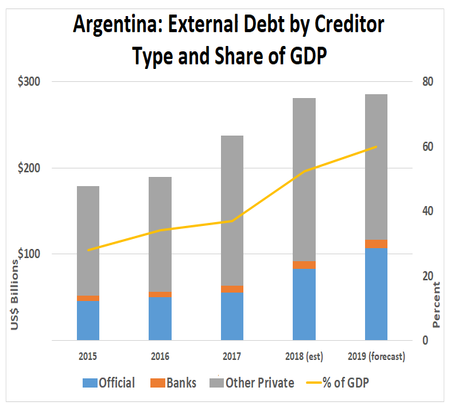Argentina Faces Economic Crisis: Buenos Aires Times
Argentina Faces Economic Crisis: Buenos Aires Times
Read the article from Buenos Aires Times about Argentina’s new president confronting economic crisis.

Rising: The IMF projects Argentina’s debt to reach $285 billion (Source: International Monetary Fund)
Read about Argentina’s economic crisis from the US Congressional Research Office:
“Argentina’s increasing reliance on external financing to fund its budget and current account deficits left it vulnerable to changes in the cost or availability of financing. Starting in late 2017, a number of factors began to create problems: the U.S. Federal Reserve (Fed) began raising interest rates, reducing investor interest in Argentine bonds; the Argentine central bank reset its inflation targets, raising questions about its independence and commitment to lower inflation; and the worst drought in Argentina in 50 years hurt commodity yields, significantly eroding agricultural export revenue.”